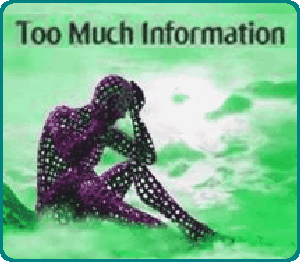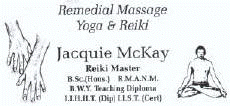
Blog Posts/Articles
We have over 30 thousand pages here but not so many articles and blog posts. If you would care to contribute YOUR article, please drop us a line.
It must be original, grammatically correct, not the same old same old and most important, it must be on topic. Not loosely or a little bit but MOSTLY on topic.
As regards ‘crediting your article’ that too must be on topic. We DO NOT credit drug companies or anything off topic. The importance of the page(s) your article is placed on will depend on the merit of your article.
Recently Viewed
Adult Acne
Natural Facelift
Paleo Diet
Health Benefits of Kale
Acne Myths
Health Benefits of Ginger

Information Overload
As the role of information grows beyond anyone’s reckoning, it grows to be too much. “TMI,” people now say. We have information fatigue, anxiety, and glut. We have met the Devil of Information Overload and his impish underlings, the computer virus, the busy signal, the dead link, and the PowerPoint presentation.
In the 1960s and ’70s, Ong declared the electronic age to be a new age of orality—but of “secondary orality,” the spoken word amplified and extended as never before, but always in the context of literacy: voices heard against a background of ubiquitous print. The first age of orality had lasted quite a bit longer. It covered almost the entire lifetime of the species, writing being a late development, general literacy being almost an afterthought.
Whether Ong would have seen cyberspace as fundamentally oral or literary, he would surely have recognized it as transformative: not just a revitalization of older forms, not just an amplification, but something wholly new.
Recently Viewed
 Acne Myths:
Acne Myths:You've probably seen it by now - a very spotty teenager with a before and after shot, showing his acne completely gone in 4 weeks. Is there any truth in it? Well maybe Continue Reading →
 Acne Face Wash:
Acne Face Wash:It's pretty impossible to be a teenager today because you have hundreds of things to deal with. It can feel like it's too much and you just want to close your eyes until Continue Reading →
 Health Benefits of Coconut Oil:
Health Benefits of Coconut Oil:Coconut oil first appeared in Southeast Asia and the Pacific islands in the mid-nineteenth century. Today the production and export of this oil is part of one of the Continue Reading →
 Marmite for Keto Flu:
Marmite for Keto Flu:I was sorely tempted the title this page 'Marmite for Keto Flu? WTF???' Having lived in the uk for over 60 years I am a big marmite fan. You either love it or hate it. Continue Reading →
 Turmeric Health Benefits:
Turmeric Health Benefits:Turmeric is anti-inflammatory, making it effective in a lot of diseases such as those affecting the heart, avoiding seemingly random blood clots, plaque in the arteries Continue Reading →
 Reiki Healing:
Reiki Healing:Everything you need to know about Reiki whether you want to recap on the basic routines or realise the power and potential of each level; learn special techniques to Continue Reading →
